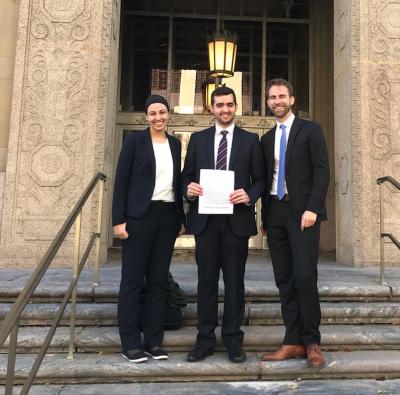Background
Under Ohio law, individuals who are held in detention while awaiting trial or for misdemeanor convictions do not forfeit their voting rights; however, Ohio makes voting impossible for people who are arrested after the mail-in ballot request deadline, which is several days prior to Election Day, and held through Election Day.
Ohio’s election law and policies do not provide late-jailed voters with any method of exercising their right to vote. As described above, voters who are arrested and held in detention after the general mail-in ballot request deadline and who remain in detention through Election Day are unable to vote in-person on Election Day or via mail ballot. The State may not disenfranchise voters because of the minor administrative difficulty of providing access to voting.
Ohio already has a procedure to deliver mail-in ballots to those who are detained prior to the mail ballot deadline. Likewise, Ohio already has a procedure for voters who discover in the days leading up to an election that they are unable to reach the polls due to unforeseen hospitalization. Late-jailed voters could be easily accommodated by granting them access to the procedure available to late-hospitalized voters. The state recognizes that it has a compelling reason to facilitate the provision of ballots to late-hospitalized voters; there is no reason to prevent late-jailed voters from using that procedure and casting their ballots as well.
Ohio law violates Equal Protection by treating late-jailed voters differently from individuals facing unforeseen medical emergencies. Due to unforeseen events occurring in the days immediately preceding the election, both late-jailed and late-hospitalized voters are physically unable to exercise the right to vote; however, only late-hospitalized voters are provided with access to the polls. This disparate treatment is unrelated to either groups’ qualifications to vote and is an arbitrary burden that violates Equal Protection.
*The name of this case changed, as the defendant, Jon Husted, left office. The defendant is now Ohio Secretary of State Frank LaRose.
Impact on Voters
Absent relief, Defendants’ actions will result in the permanent denial of plaintiffs’ fundamental right to vote in the 2018 election, and in future elections for similarly situated people.
